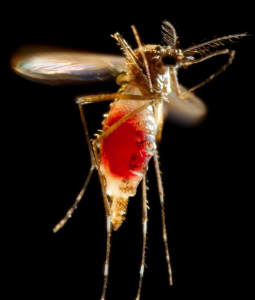The mosquito borne virus, dengue has started strong in Malaysia during the first month or so of 2014, with health officials reporting 9,453 and 17 deaths since Jan. 1, according to a recent Sun Daily report.
This compares to 2,559 cases and five deaths during the same time frame in 2013.

Image/CDC
Deputy Director-General of Health (Public Health) Datuk Dr Lokman Hakim Sulaiman said the ministry has identified 594 denguehotspots in the country, with 115 in Selangor, Negri Sembilan, Kuala Lumpur and Putrajaya.
The severe outbreak of dengue fever, at approximately 2,000 cases a week, has prompted health officials to attempt to integrate the biological agent Bacillus thuringiensis israelensis (BTI) into themosquito control strategy (See video report).
Health Minister Datuk Seri Dr S. Subramaniam said of BTI, “Instead of using just insecticide to kill the (adult) Aedes, we are now also fogging with a biological agent.”
BTI is a bacterium found naturally in soils, and has been used worldwide as a biological control agent to combat mosquitoes and black flies since 1982.During the spore-forming stage of its life cycle, the bacterium produces a protein crystal which is toxic only to mosquito and black fly larvae.These protein crystals will be lodged in the larvae’s digestive system when they are feeding.When the crystals dissolve, they will liberate toxic protein molecules that start to attack the larvae’s stomach lining, causing the creature to die within days.
Several years ago, researchers used BTI in Malaysia during a severe dengue outbreak where they concluded, “a wide application of VectoBac WG at target larval habitats is able to provide control of dengue mosquito vectors”.
Dengue fever is an infectious disease carried by mosquitoes and caused by any of four related dengue viruses. This disease used to be called “break-bone fever” because it sometimes causes severe joint andmuscle pain that feels like bones are breaking.
The World Health Organization (WHO) estimates there may be 50–100 million dengue infectionsworldwide every year. However, new research from the University of Oxford and the Wellcome Trust, using cartographic approaches, estimate there to be 390 million dengue infections per year worldwide.
There are three types of dengue fever in order of less severe to most: the typical uncomplicated dengue fever, dengue hemorrhagic fever (DHS) and dengue shock syndrome (DSS).
There is not a vaccine for dengue fever. There is no treatment for dengue, just treat the symptoms.


No comments:
Post a Comment